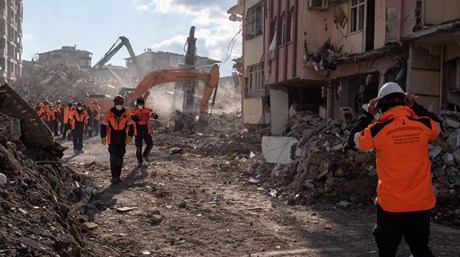From delayed emergency response to poor construction, societal anger mounts at manmade failures both before and after natural disaster.

As the dust settled on the rubble of Turkish cities, citizens began asking hard questions. Why was the government response so slow, and why did so many buildings fall in the first place?
Some Christians have joined the chorus.
“During the earthquake, some serious mistakes were made,” said Melih Ekener, executive director of SAT-7 TURK, an inter-denominational satellite television ministry with offices in Istanbul. “But with the destruction of cities with large Christian populations, we are feeling more alone than ever.”
The mistakes came both before and after, he said. But the church paid a disproportionate price, as the ancient cities of Antakya, Iskenderun, and Diyarbakir collectively held the majority of Turkey’s Christians—about 1 percent of the overall population of 85 million.
President Recep Tayyip Erdogan has pledged to rebuild affected areas. And with a local death toll of over 40,000 and one million people displaced across a 10-province region roughly the size of Switzerland, any government would struggle, Ekener said.
But nodding his head at a long list of reported failures both before and after the 7.8-magnitude earthquake and 7.5-magnitude aftershock, Ekener said trust in official institutions has been shaken.
The results are tragic.
Not all can be blamed on the government. The earthquake damaged the local airport and road systems, bottlenecking equipment necessary for rescue. Freezing temperatures, lack of electricity, and the sheer scale of devastation handicapped relief efforts.
But three or more days were lost due to poor coordination in the centralizing of effort.
“The system makes sense,” said Ekener. “But it does slow things down.”
One Turkish Christian, ...
from Christianity Today Magazine
Umn ministry


.gif)

.gif)
.gif)
